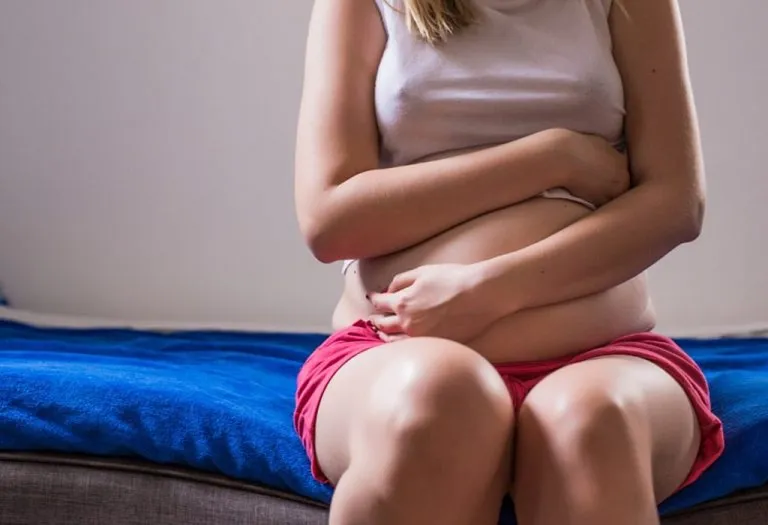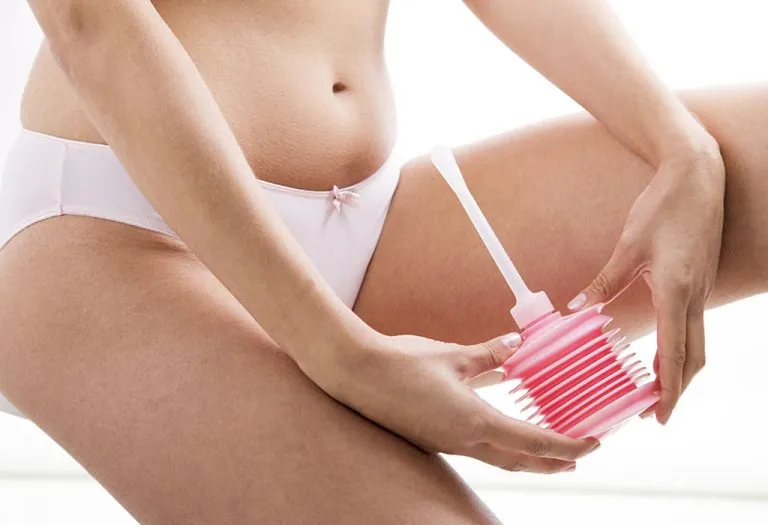Pregnancy Sweating – Causes and How to Manage It?
Sweating in pregnancy can feel excessive, but it is normal, and understanding why it happens can help you manage it better.

Pregnancy is marked by numerous changes in the body of a woman. While many changes within the body may not be felt, there are changes that alter a woman’s daily lifestyle during pregnancy. Excessive sweating is one such physical change a pregnant woman will most likely experience. Excessive sweating during pregnancy, known as hyperhidrosis, is a common yet often under-discussed issue that many expectant mothers face. This increased sweating can be uncomfortable and sometimes distressing, impacting daily activities and overall well-being.
It is important to understand the connection between sweating and pregnancy, as many expectant mothers experience this symptom. Read on to learn the reasons for excessive sweating during pregnancy and strategies to help expectant mothers stay comfortable and confident throughout their pregnancy journey.
Is Sweating an Early Pregnancy Symptom?
Sweating, much like mood swings, swollen breasts, and extreme fatigue, is a normal part of pregnancy. It’s not uncommon to experience sweaty hands and feet during this time, as sweating in pregnancy the body undergoes frequent changes in hormone levels and the secretion of new hormones, which can trigger hot flashes.
When Does Excessive Sweating Start in Pregnancy?
Excessive sweating during pregnancy can vary from woman to woman, but it is most commonly experienced during the first and third trimesters. Hormonal changes, increased blood flow, and the body’s efforts to regulate its temperature can all contribute to sweating more than usual. However, in the second trimester, many women experience a decrease in excessive sweating. This is often attributed to the stabilisation of hormone levels and the body adapting to the physiological changes of pregnancy.
Causes of Excessive Sweating While Pregnant
Understanding the causes of severe sweating during pregnancy is essential for effectively managing this common concern. Here are the causes of excessive sweating among pregnant women.
1. Changes in Hormones
Hormones cause a lot of fluctuations in the body during pregnancy, and these fluctuations are also responsible for excessive sweating (1).
2. Medications
Taking medication for fever, nausea, and depression can cause variations in body temperature and result in sweat at night during pregnancy. The release of sweat can also be a side-effect of these medicines (3).
3. Increased Blood Flow
During pregnancy, your blood plasma volume increases by a vast amount, increasing the blood level delivered to your skin’s surface. The rise in body temperature could be a reason for excessive sweating (4).
4. Performing Activities That Cause Stress
If you’re pregnant and sweating a lot, it could be due to activities that involve a lot of movement, like exercising, often leading to pregnancy sweating.
5. Infection and Illness
Another cause of sweating during pregnancy can be an infection or illness. Hodgkin’s lymphoma is a type of cancer which develops during pregnancy in the lymphatic system (5).
6. Changes in Thyroid Gland
The changing hormones in a pregnant woman’s body can increase thyroid hormone levels. This condition can be a cause of excessive sweating (2).
7. Consumption of Spicy Food and Caffeine
Food items that contain spices, caffeine or excess sugar are bound to increase the body temperature by generating more heat. These foods increase the metabolic rate of the body and cause excessive sweating.
8. Weight Gain
The extra weight gained during pregnancy can make physical activities more strenuous, causing the body to overheat and sweat more.
9. Higher Body Temperature
The metabolic activity required to support fetal growth raises the core body temperature during pregnancy, leading to increased perspiration.
10. Fluid Retention
Pregnant women often retain more fluids; the body might try to expel this excess fluid through sweating.
11. Anxiety
Pregnancy can bring about significant emotional changes and stress, leading to increased levels of anxiety. Anxiety can trigger the body’s “fight or flight” response, causing sweating as part of the body’s natural reaction to stress.
12. High Levels of Progesterone
Progesterone levels rise during pregnancy to support the uterine lining and the growing fetus. This hormone can also increase the body’s core temperature, leading to more sweating as the body attempts to cool down (6).
What Is Nocturnal Hyperhidrosis or Night Sweats?
The changing hormones during pregnancy can lead to nocturnal hyperhidrosis, a condition characterised by excessive sweating during sleep. This condition is also common during the menopausal transition years. It’s crucial to understand the underlying cause of this condition. While it can be a result of hormonal changes or warm surroundings, it could also be a symptom of an underlying illness or infection that requires medical attention.
How to Get Rid of Excessive Sweating During Pregnancy
While there is no cure for sweating, here are some tips which can help you reduce its impact and make you feel better:
- Drink water to stay hydrated and consume food that keeps you cool and reduces body heat.
- Avoid heavy exercise, especially when it is too hot. Give preference to exercising in air-conditioned rooms and walking early in the morning or evening (7).
- Avoid putting on too many layers of clothing. Wear light-coloured clothes which are made of soft material. Ensure that the material of your clothing allows breathability and does not trap heat (9).
- Apply talcum powder on your body, especially in areas prone to friction. Talcum powder will absorb sweat.
- Avoid direct sunlight during the day, especially during the summer. Spending time in air-conditioning will keep your body cool and reduce sweating.
- Sleep on a bath towel or pile up extra layers of bed sheets on your bed. This will help absorb extra sweat and keep you dry.
- Avoid eating spicy food and drinking hot beverages, which trigger your sweat reflex. Consuming alcohol, caffeinated drinks, and eating chocolates or sweets should be avoided (10).
- Do not lock yourself inside. Keep the windows open to allow ventilation and fresh air. Fanning yourself continuously will dry the sweat.
- Take frequent baths, especially before going to bed.
- Drink natural, fresh fruit and vegetable juices. They will provide the necessary nutrition and also keep you cool. Avoid sodas and packaged juices as they contain a lot of sugar.
- Do not apply too much oil, makeup or body lotion on the skin.
- Applying antiperspirant can also help reduce sweating.
- Long hair can contribute to sweating. Braid your hair so that they are not all over you.
- Keep a spray bottle near you and spritz your face with water when you experience these hot flashes.
When Should You Consult the Doctor?
It’s crucial to consult your doctor if you experience sweating along with high fever, palpitation, or rapid heartbeat. These symptoms could indicate a severe condition such as cancer or leukaemia. It’s important to keep your doctor informed about any discomfort you’re experiencing. They will determine if further tests or medication are necessary to manage your sweating.
FAQs
1. Will excessive sweating during pregnancy harm my baby?
In general, excessive sweating itself is unlikely to harm your baby. However, if you experience symptoms like dehydration or electrolyte imbalances due to excessive sweating, it’s essential to address them promptly to ensure the well-being of both you and your baby.
2. Is it normal to experience increased sweating during the third trimester of pregnancy?
Yes, it’s common for many women to experience increased sweating during pregnancy’s third trimester. As your body undergoes significant changes, including hormonal fluctuations and increased blood flow, pregnancy sweating becomes more noticeable and it’s normal to sweat more than usual.
3. Will excessive sweating during pregnancy go away after giving birth?
For many women, excessive sweating tends to diminish or resolve after giving birth as hormone levels return to normal and the body adjusts postpartum. However, some individuals may continue to experience sweating issues, especially if they are breastfeeding or undergoing hormonal fluctuations during the postpartum period (8).
4. Will my sweat smell different now that I’m pregnant?
Yes, it’s common for the odour of your sweat to change. Hormonal fluctuations can alter your body chemistry and make you more sensitive to smells, which you may perceive as a stronger or different scent.
Sweating a lot during pregnancy is not unusual. It can sometimes get uncomfortable, but this is out of your control. You can take the necessary precautions to ensure that the sweating is minimised and you are not too affected.
Also Read:
Night Sweats in Pregnancy
Body Odour During Pregnancy
Vaginal Smell When Pregnant
Overheating (Hyperthermia) in Pregnancy
Was This Article Helpful?
Parenting is a huge responsibility, for you as a caregiver, but also for us as a parenting content platform. We understand that and take our responsibility of creating credible content seriously. FirstCry Parenting articles are written and published only after extensive research using factually sound references to deliver quality content that is accurate, validated by experts, and completely reliable. To understand how we go about creating content that is credible, read our editorial policy here.
1. International Hyperhidrosis Society – Night Sweats
2. CHU Sainte-Justine – Hyperthyroidism during pregnancy; CHU Sainte-Justine
3. American Academy of Family Physicians – Diagnosing Night Sweats
4. NHS – Common health problems in pregnancy
6. National Library of Medicine – Physiology, Ovulation And Basal Body Temperature
7. NCT – Hot weather and high body temperature during pregnancy
9. NHS – Excessive sweating (hyperhidrosis)
10. Sleep Foundation – What Causes Night Sweats?




































